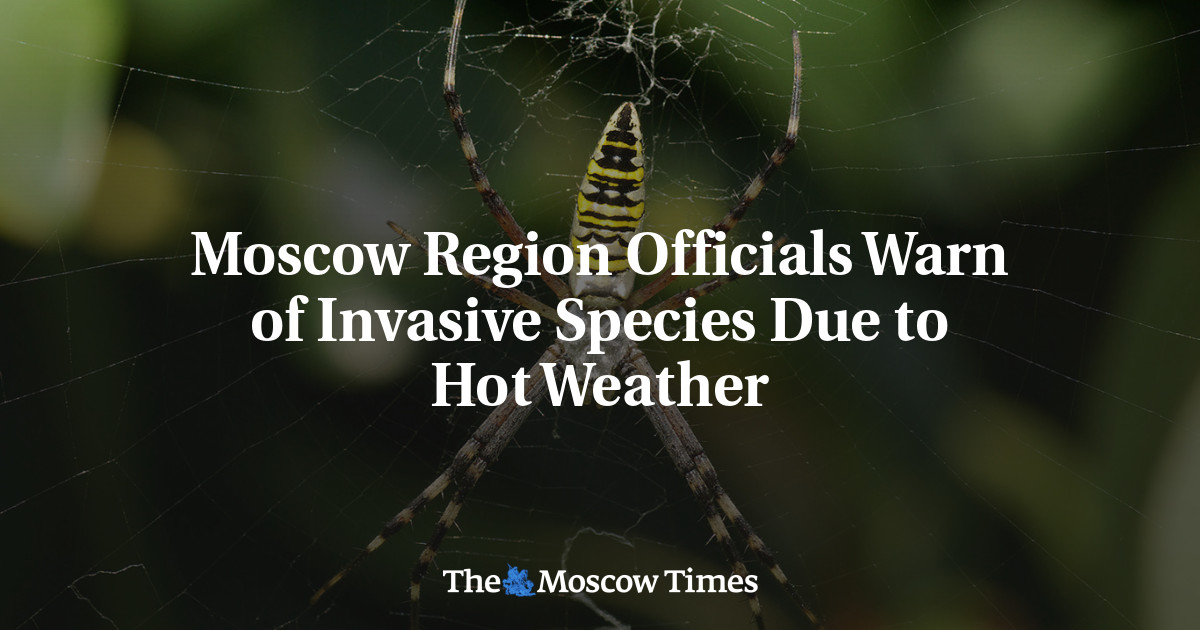
The unusually hot summer weather in the Moscow region this year may trigger an increase in populations of invertebrate species, the regional Environmental Ministry said this week.
Praying mantises, burgundy snails and wasp spiders, which were uncommon a decade ago, have already established populations in the region due to winter thaws, warm springs and hot summers, officials said.
“The conditions in our area, including an abundance of food and a suitable climate, have facilitated the settlement and strengthening of species from the south,” said Moscow Region’s Natural Resources Minister Tikhon Firsov.
Last summer, large wasp spiders, common southern Russia, invaded homes in several districts in the Moscow region, alarming locals.
Specialists have also reported the appearance of the mammoth wasp — the largest in Europe — first spotted in the Moscow region in 2018.
Russian scientists have previously warned that human-induced climate change allows invertebrates to produce more generations within a season, with “unpredictable and often negative consequences.”
For example, forests in northern Russia have already suffered from outbreaks of pests whose populations have exploded.
Moscow officials reassured residents that there is no risk of the new invaders overtaking dachas and forests, as “every bug has a predator ready to eat it.”
“Every year, nature surprises us, and this is not limited to invertebrates. These are natural processes resulting from shifting habitats, global warming and an increase in food” Firsov said.